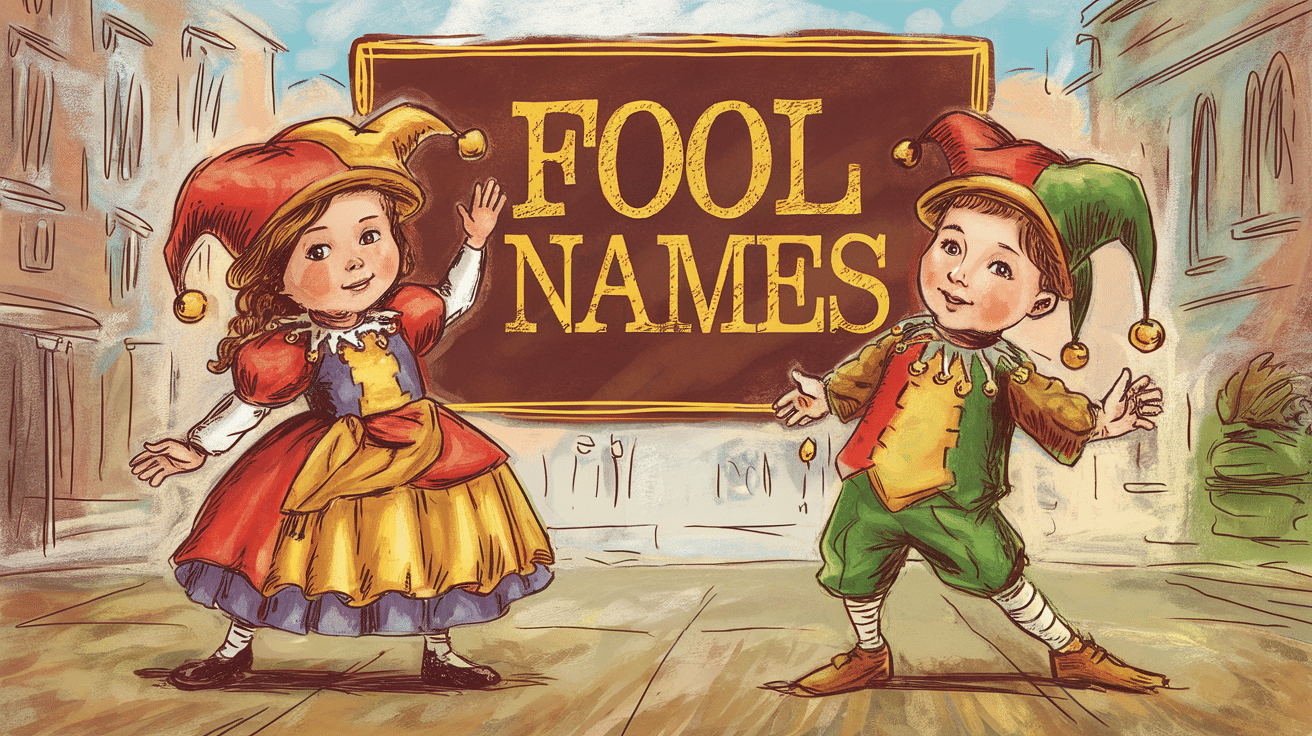
Finding the perfect name for your baby boy can be tough. With so many options, it’s easy to feel overwhelmed.
Roman names offer a timeless appeal, blending history and style. I’ve got good news for you. This list of 201+ unique Roman male names for 2024 will make your search easier and more fun.
You’ll discover a mix of classic and lesser-known options to suit your taste.
In this article, I’ll share:
- A wide range of Roman names, from popular choices to hidden gems
- The meanings behind these names help you pick one that resonates
- Tips on how to choose the right Roman name for your little one
Let’s explore these meaningful names together and find the ideal one for your baby boy.
List of Roman Male Names to Consider

1. Augustus
- Meaning: Great, venerable
- Cultural Significance: Title given to Roman emperors, starting with Octavian who became the first emperor of Rome.
2. Julius
- Meaning: Youthful, downy-bearded
- Cultural Significance: Name of the famous Roman general Julius Caesar
3. Marcus
- Meaning: Dedicated to Mars (the Roman god of war)
- Cultural Significance: Popular Roman name, borne by many notable figures including Marcus Aurelius, a Roman emperor and philosopher.
4. Caius
- Meaning: Rejoice
- Cultural Significance: Common Roman praenomen (given name), held by several notable historical figures.
5. Lucius
- Meaning: Light
- Cultural Significance: Commonly used in ancient Rome, Lucius was the name of several prominent figures, including Lucius Annaeus Seneca, the philosopher.
6. Titus
- Meaning: Honored
- Cultural Significance: Name of the Roman emperor who completed the Colosseum and dealt with the eruption of Mount Vesuvius.
7. Tiberius
- Meaning: Of the Tiber (a river in Rome)
- Cultural Significance: Name of the second Roman emperor, Tiberius Caesar Augustus.
8. Octavian
- Meaning: Eighth
- Cultural Significance: The original name of Augustus, the first Roman emperor, who established the Roman Empire.
9. Claudius
- Meaning: Lame, limping
- Cultural Significance: Name of a Roman emperor known for his extensive public works and administrative reforms.
10. Trajan
- Meaning: Not provided
- Cultural Significance: Roman emperor renowned for his military conquests and expansion of the Roman Empire to its greatest extent.
11. Maximus
- Meaning: Greatest
- Cultural Significance: Popular name in ancient Rome, often used to signify greatness and high status.
12. Flavius
- Meaning: Yellow, blond
- Cultural Significance: Name of a Roman dynasty that included emperors such as Vespasian and his sons Titus and Domitian.
13. Silvanus
- Meaning: Wood, forest
- Cultural Significance: Name associated with the Roman god of the woods and fields.
14. Aquila
- Meaning: Eagle
- Cultural Significance: Name used in ancient Rome, often symbolizing strength and freedom.
15. Fortunatus
- Meaning: Fortunate, lucky
- Cultural Significance: Name suggesting good fortune and prosperity, used in Roman times.
16. Justus
- Meaning: Just, fair
- Cultural Significance: Popular in Roman times, symbolizing justice and righteousness.
17. Drusus
- Meaning: Strong, robust
- Cultural Significance: Name borne by several members of the Roman imperial family, including Nero Claudius Drusus, a prominent general.
18. Valerius
- Meaning: Strong, healthy
- Cultural Significance: Name of a Roman gens (clan), notable in Roman history and politics.
19. Dominus
- Meaning: Lord, master
- Cultural Significance: Common title and name in ancient Rome, symbolizing authority and control.
20. Victor
- Meaning: Conqueror
- Cultural Significance: Popular name in ancient Rome, signifying victory and triumph.
21. Nero
- Meaning: Strong, vigorous
- Cultural Significance: Name of the infamous Roman emperor known for his tyrannical rule and the Great Fire of Rome.
22. Quintus
- Meaning: Fifth
- Cultural Significance: Common praenomen in ancient Rome, often indicating the fifth-born child in a family.
23. Severus
- Meaning: Stern, severe
- Cultural Significance: Name of several notable figures, including the Roman emperor Septimius Severus.
24. Cassius
- Meaning: Hollow
- Cultural Significance: Name of the Roman senator who played a leading role in the assassination of Julius Caesar.
25. Commodus
- Meaning: Suitable, convenient
- Cultural Significance: Name of a Roman emperor known for his erratic and self-indulgent behavior, often depicted negatively in historical accounts.
26. Romulus
- Meaning: Not provided
- Cultural Significance: Legendary founder of Rome and one of its first kings, along with his twin brother Remus.
27. Remus
- Meaning: Not provided
- Cultural Significance: Legendary twin brother of Romulus, co-founder of Rome in Roman mythology.
28. Appius
- Meaning: Not provided
- Cultural Significance: Name of a prominent Roman gens, known for the construction of the Appian Way.
29. Decimus
- Meaning: Tenth
- Cultural Significance: Common praenomen in ancient Rome, often indicating the tenth-born child in a family.
30. Fabius
- Meaning: Bean grower
- Cultural Significance: Name of a prominent Roman gens, with notable members including the general Quintus Fabius Maximus.
31. Horatius
- Meaning: Not provided
- Cultural Significance: Name of a Roman hero celebrated for his defense of the Sublician Bridge against the Etruscans.
32. Publius
- Meaning: Public, of the people
- Cultural Significance: Common Roman praenomen, held by several notable historical figures, including Publius Cornelius Scipio.
33. Rufus
- Meaning: Red-haired
- Cultural Significance: Common Roman cognomen, often indicating red hair or a ruddy complexion.
34. Sergius
- Meaning: Servant
- Cultural Significance: Name of a Roman gens, with several notable members in Roman history.
35. Tarquinius
- Meaning: Not provided
- Cultural Significance: Name of a Roman royal family, including the last kings of Rome before the establishment of the Republic.
36. Varro
- Meaning: Durable, strong
- Cultural Significance: Name of a prominent Roman scholar and writer, Marcus Terentius Varro.
37. Vibius
- Meaning: Not provided
- Cultural Significance: Name of a Roman gens, with several notable members in Roman history.
38. Albinus
- Meaning: White, fair
- Cultural Significance: Common Roman cognomen, often indicating a fair complexion.
39. Aemilius
- Meaning: Rival
- Cultural Significance: Name of a prominent Roman gens, with notable members including Aemilius Paulus.
40. Agrippa
- Meaning: Wild horse
- Cultural Significance: Name of several notable Roman figures, including Marcus Vipsanius Agrippa, a close friend of Augustus.
41. Antius
- Meaning: Not provided
- Cultural Significance: Name of a Roman gens, with several notable members in Roman history.
42. Arruns
- Meaning: Not provided
- Cultural Significance: Name of a Roman gens, with several notable members in Roman history.
43. Atticus
- Meaning: From Attica
- Cultural Significance: Name famously borne by Titus Pomponius Atticus, a close friend of Cicero.
44. Balbus
- Meaning: Stammerer
- Cultural Significance: Common Roman cognomen, often indicating a speech impediment.
45. Brutus
- Meaning: Heavy, dull
- Cultural Significance: Name of the Roman senator Marcus Junius Brutus, one of the lead assassins of Julius Caesar.
46. Camillus
- Meaning: Attendant at a sacrifice
- Cultural Significance: Name associated with several notable historical figures, including Marcus Furius Camillus, a military leader.
47. Cato
- Meaning: Wise
- Cultural Significance: Name of the Roman statesman Cato the Elder, known for his conservatism and opposition to Hellenization.
48. Celsus
- Meaning: Tall, lofty
- Cultural Significance: Name of the Roman encyclopedist Aulus Cornelius Celsus, known for his medical writings.
49. Cinna
- Meaning: Not provided
- Cultural Significance: Name of several notable Romans, including Lucius Cornelius Cinna, a supporter of Julius Caesar.
50. Corvus
- Meaning: Raven
- Cultural Significance: Name associated with Marcus Valerius Corvus, a Roman hero known for his bravery in battle.
51. Crispus
- Meaning: Curly-haired
- Cultural Significance: Common Roman cognomen, often indicating curly hair.
52. Curio
- Meaning: Curator, guardian
- Cultural Significance: Name of a Roman family, with several notable members involved in politics.
53. Faustus
Meaning: Lucky, fortunate
- Cultural Significance: Common Roman name, often associated with good fortune and success.
54. Firmus
- Meaning: Strong, steadfast
- Cultural Significance: Common Roman name, symbolizing strength and reliability.
55. Gaius
- Meaning: Rejoice
- Cultural Significance: Common Roman praenomen, held by several notable historical figures, including Gaius Julius Caesar.
56. Germanicus
- Meaning: German
- Cultural Significance: Title given to Roman generals who achieved victories in Germania, most notably Germanicus Julius Caesar.
57. Gratian
- Meaning: Graceful
- Cultural Significance: Name of a Roman emperor known for his efforts to combat paganism and promote Christianity.
58. Hadrian
- Meaning: From Hadria
- Cultural Significance: Name of the Roman emperor Hadrian, known for building Hadrian’s Wall in Britain.
59. Laelius
- Meaning: Not provided
- Cultural Significance: Name of a Roman gens, with notable members including Gaius Laelius, a friend of Scipio Africanus.
60. Lentulus
- Meaning: Not provided
- Cultural Significance: Name of a Roman gens, with several notable members in Roman history.
61. Manlius
- Meaning: Not provided
- Cultural Significance: Name of a Roman gens, with several notable members in Roman history.
62. Marcellus
- Meaning: Little warrior
- Cultural Significance: Name of a Roman gens, with notable members including Marcus Claudius Marcellus, a military leader.
63. Marius
- Meaning: Not provided
- Cultural Significance: Name of the Roman general and consul Gaius Marius, known for his military reforms.
64. Metellus
- Meaning: Not provided
- Cultural Significance: Name of a Roman gens, with several notable members in Roman history.
65. Nerva
- Meaning: Strong, vigorous
- Cultural Significance: Name of a Roman emperor known for his moderate and prudent rule.
66. Otho
- Meaning: Wealth, fortune
- Cultural Significance: Name of a Roman emperor who ruled briefly during the Year of the Four Emperors.
67. Paullus
- Meaning: Small, humble
- Cultural Significance: Name of a Roman gens, with notable members including Lucius Aemilius Paullus, a consul and general.
68. Plinius
- Meaning: Not provided
- Cultural Significance: Name of the Roman author and naturalist Pliny the Elder, known for his work “Natural History.”
69. Pompeius
- Meaning: Not provided
- Cultural Significance: Name of the Roman general Pompey the Great, known for his military and political career.
70. Quintillus
- Meaning: Fifth
- Cultural Significance: Name of a Roman emperor who ruled briefly in the third century.
71. Regulus
- Meaning: Little king
- Cultural Significance: Name of a Roman gens, with notable members including Marcus Atilius Regulus, a consul and general.
72. Sabinus
- Meaning: Sabine
- Cultural Significance: Name of a Roman gens, often indicating descent from the Sabine people.
73. Scaevola
- Meaning: Left-handed
- Cultural Significance: Name of the Roman hero Gaius Mucius Scaevola, known for his bravery and sacrifice.
74. Seneca
- Meaning: Old
- Cultural Significance: Name of the Roman philosopher and statesman Lucius Annaeus Seneca, known for his works on Stoicism.
75. Spurius
- Meaning: Not provided
- Cultural Significance: Common Roman praenomen, often used for the eldest son in a family.
76. Statilius
- Meaning: Not provided
- Cultural Significance: Name of a Roman gens, with several notable members in Roman history.
77. Statius
- Meaning: Not provided
- Cultural Significance: Name of the Roman poet Publius Papinius Statius, known for his epic poem “Thebaid.”
78. Sulla
- Meaning: Not provided
- Cultural Significance: Name of the Roman general and dictator Lucius Cornelius Sulla, known for his constitutional reforms.
79. Tacitus
- Meaning: Silent, quiet
- Cultural Significance: Name of the Roman historian Publius Cornelius Tacitus, known for his works on the history of the Roman Empire.
80. Tullius
- Meaning: Not provided
- Cultural Significance: Name of the Roman orator and statesman Marcus Tullius Cicero, known for his speeches and writings.
81. Ulpius
- Meaning: Not provided
- Cultural Significance: Name of a Roman gens, with notable members including the emperor Trajan.
82. Vespasian
- Meaning: Not provided
- Cultural Significance: Name of the Roman emperor who founded the Flavian dynasty and began the construction of the Colosseum.
83. Vitellius
- Meaning: Not provided
- Cultural Significance: Name of a Roman emperor who ruled briefly during the Year of the Four Emperors.
84. Volesus
- Meaning: Not provided
- Cultural Significance: Name of a Roman gens, with several notable members in Roman history.
85. Aulus
- Meaning: Not provided
- Cultural Significance: Common Roman praenomen, used by several notable historical figures.
86. Calvus
- Meaning: Bald
- Cultural Significance: Common Roman cognomen, often indicating baldness.
87. Canus
- Meaning: White, grey
- Cultural Significance: Common Roman cognomen, often indicating grey or white hair.
88. Capito
- Meaning: Large-headed
- Cultural Significance: Common Roman cognomen, often indicating a large head.
89. Catullus
- Meaning: Little cat
- Cultural Significance: Name of the Roman poet Gaius Valerius Catullus, known for his love poetry.
90. Cerberus
- Meaning: Not provided
- Cultural Significance: Name of the mythical three-headed dog guarding the entrance to the Underworld in Greek and Roman mythology.
91. Cerialis
- Meaning: Of Ceres (the goddess of agriculture)
- Cultural Significance: Name associated with the Roman goddess Ceres, symbolizing agriculture and fertility.
92. Cimber
- Meaning: Not provided
- Cultural Significance: Name of the Roman senator Tillius Cimber, known for his involvement in the assassination of Julius Caesar.
93. Cincius
- Meaning: Not provided
- Cultural Significance: Name of a Roman gens, with several notable members in Roman history.
94. Citro
- Meaning: Not provided
- Cultural Significance: Name of a Roman gens, with several notable members in Roman history.
95. Clodian
- Meaning: Not provided
- Cultural Significance: Name of a Roman gens, often associated with the Clodius family.
96. Cogidubnus
- Meaning: Not provided
- Cultural Significance: Name of a British client king of Rome, known for his loyalty to the Roman Empire.
97. Crassus
- Meaning: Thick, fat
- Cultural Significance: Name of the Roman general Marcus Licinius Crassus, known for his wealth and military career.
98. Curius
- Meaning: Not provided
- Cultural Significance: Name of a Roman gens, with several notable members in Roman history.
99. Dacius
- Meaning: From Dacia (a region in Europe)
- Cultural Significance: Name associated with the region of Dacia, symbolizing strength and resilience.
100. Didius
- Meaning: Not provided
- Cultural Significance: Name of the Roman emperor Didius Julianus, known for buying the imperial throne in an auction.
101. Diocletian
- Meaning: Not provided
- Cultural Significance: Name of the Roman emperor known for his administrative reforms and the persecution of Christians.
102. Domitian
- Meaning: Not provided
- Cultural Significance: Name of the Roman emperor known for his autocratic rule and extensive building projects.
103. Duilius
- Meaning: Not provided
- Cultural Significance: Name of a Roman gens, with notable members including Gaius Duilius, a consul and naval commander.
104. Ennius
- Meaning: Not provided
- Cultural Significance: Name of the Roman poet Quintus Ennius, known for his epic poem “Annales.”
105. Evander
- Meaning:
Good man
- Cultural Significance: Name of a mythological figure who founded the city of Pallantium, which later became part of Rome.
106. Fadus
- Meaning: Not provided
- Cultural Significance: Name of a Roman gens, with several notable members in Roman history.
107. Fannius
- Meaning: Not provided
- Cultural Significance: Name of a Roman gens, with several notable members in Roman history.
108. Festus
- Meaning: Festive, joyful
- Cultural Significance: Common Roman name, symbolizing joy and celebration.
109. Flaccus
- Meaning: Flabby, floppy
- Cultural Significance: Common Roman cognomen, often indicating a relaxed or easygoing nature.
110. Frontinus
- Meaning: Not provided
- Cultural Significance: Name of the Roman engineer and author Sextus Julius Frontinus, known for his work on Roman aqueducts.
111. Fulvius
- Meaning: Tawny, yellow
- Cultural Significance: Name of a Roman gens, with several notable members in Roman history.
112. Gabinus
- Meaning: From Gabii (a town in Italy)
- Cultural Significance: Name associated with the town of Gabii, symbolizing local heritage.
113. Galba
- Meaning: Not provided
- Cultural Significance: Name of the Roman emperor who ruled briefly during the Year of the Four Emperors.
114. Gallus
- Meaning: Rooster
- Cultural Significance: Common Roman cognomen, often indicating a spirited or proud nature.
115. Garianus
- Meaning: Not provided
- Cultural Significance: Name of a Roman gens, with several notable members in Roman history.
116. Gratianus
- Meaning: Graceful
- Cultural Significance: Name of a Roman emperor known for his efforts to combat paganism and promote Christianity.
117. Herminius
- Meaning: Not provided
- Cultural Significance: Name of a Roman gens, with several notable members in Roman history.
118. Herennius
- Meaning: Not provided
- Cultural Significance: Name of a Roman gens, with several notable members in Roman history.
119. Hieronymus
- Meaning: Sacred name
- Cultural Significance: Name of a Roman gens, with several notable members in Roman history.
120. Hostilian
- Meaning: Not provided
- Cultural Significance: Name of a Roman emperor who ruled briefly in the third century.
121. Iulius
- Meaning: Youthful, downy-bearded
- Cultural Significance: Name of the famous Roman general Julius Caesar.
122. Laberius
- Meaning: Not provided
- Cultural Significance: Name of a Roman gens, with several notable members in Roman history.
123. Labeo
- Meaning: Thick-lipped
- Cultural Significance: Common Roman cognomen, often indicating thick or full lips.
124. Laevinus
- Meaning: Smooth, slippery
- Cultural Significance: Name of a Roman gens, with several notable members in Roman history.
125. Livius
- Meaning: Bluish, envious
- Cultural Significance: Name of the Roman historian Titus Livius (Livy), known for his work on the history of Rome.
126. Longinus
- Meaning: Long
- Cultural Significance: Name of a Roman centurion traditionally believed to have pierced Jesus’ side with a spear.
127. Lucullus
- Meaning: Not provided
- Cultural Significance: Name of a Roman general and consul known for his luxurious lifestyle.
128. Macrinus
- Meaning: Not provided
- Cultural Significance: Name of a Roman emperor who ruled briefly in the third century.
129. Marcellinus
- Meaning: Little warrior
- Cultural Significance: Name of a Roman gens, with several notable members in Roman history.
130. Marinus
- Meaning: Of the sea
- Cultural Significance: Name of a Roman gens, often indicating a connection to the sea or maritime activities.
131. Matidianus
- Meaning: Not provided
- Cultural Significance: Name of a Roman gens, with several notable members in Roman history.
132. Maurelius
- Meaning: Not provided
- Cultural Significance: Name of a Roman gens, with several notable members in Roman history.
133. Maxentius
- Meaning: Greatest
- Cultural Significance: Name of a Roman emperor known for his conflict with Constantine the Great.
134. Nasica
- Meaning: Pointed nose
- Cultural Significance: Common Roman cognomen, often indicating a prominent nose.
135. Nonius
- Meaning: Ninth
- Cultural Significance: Common Roman praenomen, often indicating the ninth-born child in a family.
136. Norbanus
- Meaning: Not provided
- Cultural Significance: Name of a Roman gens, with several notable members in Roman history.
137. Numa
- Meaning: Not provided
- Cultural Significance: Name of the legendary second king of Rome, Numa Pompilius, known for his religious and cultural contributions.
138. Octavius
- Meaning: Eighth
- Cultural Significance: Name of the Roman gens from which Augustus, the first Roman emperor, hailed.
139. Ovidius
- Meaning: Not provided
- Cultural Significance: Name of the Roman poet Ovid, known for his work “Metamorphoses.”
140. Pacuvius
- Meaning: Not provided
- Cultural Significance: Name of the Roman poet and playwright Pacuvius, known for his tragic plays.
141. Persius
- Meaning: Persian
- Cultural Significance: Name of the Roman satirist Aulus Persius Flaccus, known for his works on moral and ethical subjects.
142. Petronius
- Meaning: Not provided
- Cultural Significance: Name of the Roman author Petronius, known for his satirical novel “Satyricon.”
143. Pilate
- Meaning: Armed with a javelin
- Cultural Significance: Name of the Roman governor Pontius Pilate, known for presiding over the trial of Jesus.
144. Piso
- Meaning: Not provided
- Cultural Significance: Name of a Roman gens, with several notable members involved in politics and conspiracies.
145. Plautus
- Meaning: Flat-footed
- Cultural Significance: Name of the Roman playwright Plautus, known for his comedies.
146. Pollio
- Meaning: Not provided
- Cultural Significance: Name of the Roman poet and historian Gaius Asinius Pollio, known for his literary and political career.
147. Pomponius
- Meaning: Not provided
- Cultural Significance: Name of a Roman gens, with notable members including the philosopher Pomponius Atticus.
148. Pontius
- Meaning: Not provided
- Cultural Significance: Name of a Roman gens, with notable members including Pontius Pilate.
149. Porcius
- Meaning: Pig
- Cultural Significance: Name of a Roman gens, often indicating agricultural roots.
150. Priscus
- Meaning: Ancient
- Cultural Significance: Common Roman name, often symbolizing antiquity and tradition.
151. Probus
- Meaning: Good, honest
- Cultural Significance: Name of a Roman emperor known for his military achievements and efforts to restore stability to the empire.
152. Propertius
- Meaning: Not provided
- Cultural Significance: Name of the Roman poet Sextus Propertius, known for his elegies.
153. Quirinus
- Meaning: Spear
- Cultural Significance: Name of a Roman god associated with the founding of Rome, often identified with Romulus.
154. Rabirius
- Meaning: Not provided
- Cultural Significance: Name of a Roman gens, with several notable members in Roman history.
155. Rufinus
- Meaning: Red-haired
- Cultural Significance: Common Roman cognomen, often indicating red hair or a ruddy complexion.
156. Sacerdos
- Meaning: Priest
- Cultural Significance: Common Roman cognomen, often indicating religious service.
157. Salvius
- Meaning: Safe, healthy
- Cultural Significance: Common Roman name, symbolizing health and well-being.
158. Saxa
- Meaning: Rocks
- Cultural Significance: Common Roman cognomen, often indicating a connection to rocky or stony landscapes.
159. Scribonius
- Meaning: Not provided
- Cultural Significance: Name of a Roman gens, with several notable members in Roman history.
160. Sempronius
- Meaning: Not provided
- Cultural Significance: Name of a Roman gens, with several notable members in Roman history.
161. Sentius
- Meaning: Not provided
- Cultural Significance: Name of a Roman gens, with several notable members in Roman history.
162. Serenus
- Meaning: Calm, serene
- Cultural Significance: Common Roman name, symbolizing peace and tranquility.
163. Sertorius
- Meaning: Not provided
- Cultural Significance: Name of the Roman general Quintus Sertorius, known for his resistance against the Roman Senate.
164. Servilius
- Meaning: Not provided
- Cultural Significance: Name of a Roman gens, with several notable members in Roman history.
165. Siculus
- Meaning: Sicilian
- Cultural Significance: Common Roman cognomen, often indicating a connection to Sicily.
166. Silanus
- Meaning: Not provided
- Cultural Significance: Name of a Roman gens, with several notable members in Roman history.
167. Silo
- Meaning: Not provided
- Cultural Significance: Name of a Roman gens, with several notable members in Roman history.
168. Solinus
- Meaning: Not provided
- Cultural Significance: Name of the Roman author Gaius Julius Solinus, known for his collection of geographical and historical information.
169. Stolo
- Meaning: Shoot, branch
- Cultural Significance: Name of a Roman gens, with several notable members in Roman history.
170. Strabo
- Meaning: Squinty-eyed
- Cultural Significance: Common Roman cognomen, often indicating a squint or eye defect.
171. Suetonius
- Meaning: Not provided
- Cultural Significance: Name of the Roman historian Gaius Suetonius Tranquillus, known for his biographies of Roman emperors.
172. Superbus
- Meaning: Proud, arrogant
- Cultural Significance: Name of the last king of Rome, Lucius Tarquinius Superbus, known for his tyrannical rule.
173. Terentius
- Meaning: Not provided
- Cultural Significance: Name of the Roman playwright Publius Terentius Afer, known for his comedies.
174. Tertullian
- Meaning: Not provided
- Cultural Significance: Name of the early Christian author Tertullian, known for his apologetic and theological works.
175. Tiberinus
- Meaning: From the Tiber (a river in Rome)
- Cultural Significance: Name associated with the god of the Tiber River, important in Roman mythology.
176. Torquatus
- Meaning: Adorned with a collar
- Cultural Significance: Name of a Roman gens, with several notable members in Roman history.
177. Trebonius
- Meaning: Not provided
- Cultural Significance: Name of a Roman gens, with several notable members involved in politics and military service.
178. Trogus
- Meaning: Not provided
- Cultural Significance: Name of the Roman historian Pompeius Trogus, known for his work “Historiae Philippicae.”
179. Turpilianus
- Meaning: Not provided
- Cultural Significance: Name of a Roman gens, with several notable members in Roman history.
180. Ursinus
- Meaning: Little bear
- Cultural Significance: Common Roman cognomen, often symbolizing strength and bravery.
181. Vala
- Meaning: Not provided
- Cultural Significance: Name of a Roman gens, with several notable members in Roman history.
182. Valesius
- Meaning: Not provided
- Cultural Significance: Name of a Roman gens, with several notable members in Roman history.
183. Varenus
- Meaning: Not provided
- Cultural Significance: Name of a Roman gens, with several notable members in Roman history.
184. Varus
- Meaning: Bent, crooked
- Cultural Significance: Common Roman cognomen, often indicating a physical deformity.
185. Vatinius
- Meaning: Not provided
- Cultural Significance: Name of a Roman gens, with several notable members in Roman history.
186. Veranius
- Meaning: Not provided
- Cultural Significance: Name of a Roman gens, with several notable members in Roman history.
187. Vespillo
- Meaning: Corpse-bearer
- Cultural Significance: Common Roman cognomen, often indicating a connection to funerary services.
188. Vestinus
- Meaning: Not provided
- Cultural Significance: Name of a Roman gens, with several notable members in Roman history.
189. Vibulanus
- Meaning: Not provided
- Cultural Significance: Name of a Roman gens, with several notable members in Roman history.
190. Victorinus
- Meaning: Little victor
- Cultural Significance: Name of a Roman emperor who ruled briefly in the third century.
191. Vinicius
- Meaning: Not provided
- Cultural Significance: Name of a Roman gens, with several notable members in Roman history.
192. Vipsanius
- Meaning: Not provided
- Cultural Significance: Name of a Roman gens, with notable members including Marcus Vipsanius Agrippa.
193. Virginius
- Meaning: Not provided
- Cultural Significance: Name of a Roman gens, with several notable members in Roman history.
194. Vitalis
- Meaning: Full of life
- Cultural Significance: Common Roman name, symbolizing vitality and life.
195. Volcacius
- Meaning: Not provided
- Cultural Significance: Name of a Roman gens, with several notable members in Roman history.
196. Volumnius
- Meaning: Not provided
- Cultural Significance: Name of a Roman gens, with several notable members in Roman history.
197. Vorenus
- Meaning: Not provided
- Cultural Significance: Name of a Roman gens, with several notable members in Roman history.
198. Vulturius
- Meaning: Vulture
- Cultural Significance: Common Roman cognomen, often symbolizing vigilance and tenacity.
199. Xanthus
- Meaning: Yellow, blond
- Cultural Significance: Common Roman cognomen, often indicating fair hair or complexion.
200. Xenophon
- Meaning: Foreign voice
- Cultural Significance: Name of the ancient Greek historian Xenophon, known for his works on history and philosophy.
201. Xylander
- Meaning: Woodcutter
- Cultural Significance: Common Roman cognomen, often indicating a connection to forestry or woodcutting.
202. Yanthius
- Meaning: Not provided
- Cultural Significance: Name of a Roman gens, with several notable members in Roman history.
203. Zama
- Meaning: Not provided
- Cultural Significance: Name of the site of the Battle of Zama, where Scipio Africanus defeated Hannibal in 202 BC.
204. Zephyrinus
- Meaning: West wind
- Cultural Significance: Name of a Roman pope known for his efforts to combat heresy.
205. Zeno
- Meaning: Gift of Zeus
- Cultural Significance: Name of the Greek philosopher Zeno of Elea, known for his paradoxes.
Conclusion
We’ve explored an amazing collection of Roman male names, each with its own unique charm and history. I hope this list has inspired you and made your search for the perfect name easier.
Remember, choosing a name is a personal journey. Take your time, say the names out loud, and imagine calling your little boy by that name as he grows up. Consider how it pairs with your last name and potential nicknames.
What’s your favorite name from this list? Do you have any Roman names to add? I’d love to hear your thoughts in the comments below.
If you found this helpful, why not check out our other articles on baby naming? Or sign up for our newsletter to get more parenting tips and name ideas delivered straight to your inbox.





















































































































































































































































































































